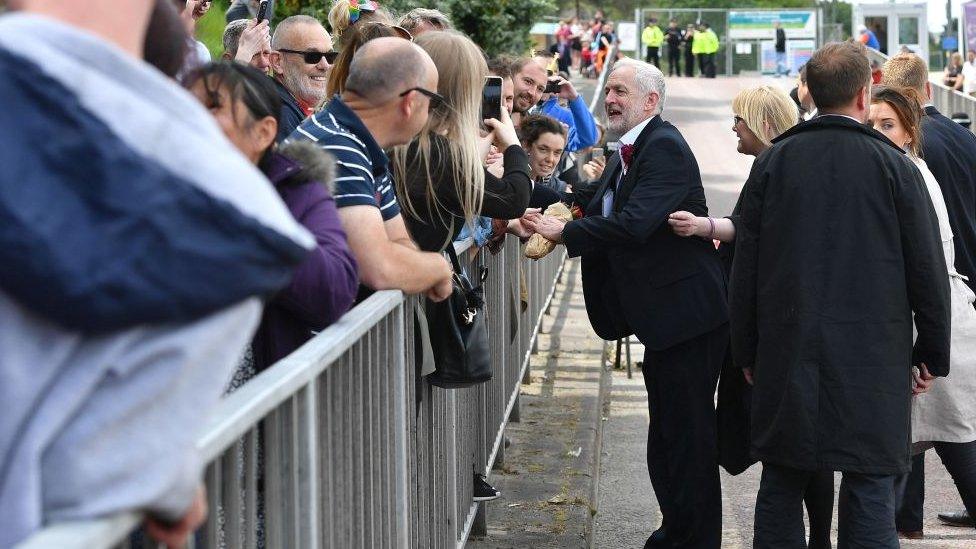State of the parties in Wales: Welsh Conservatives
- Published
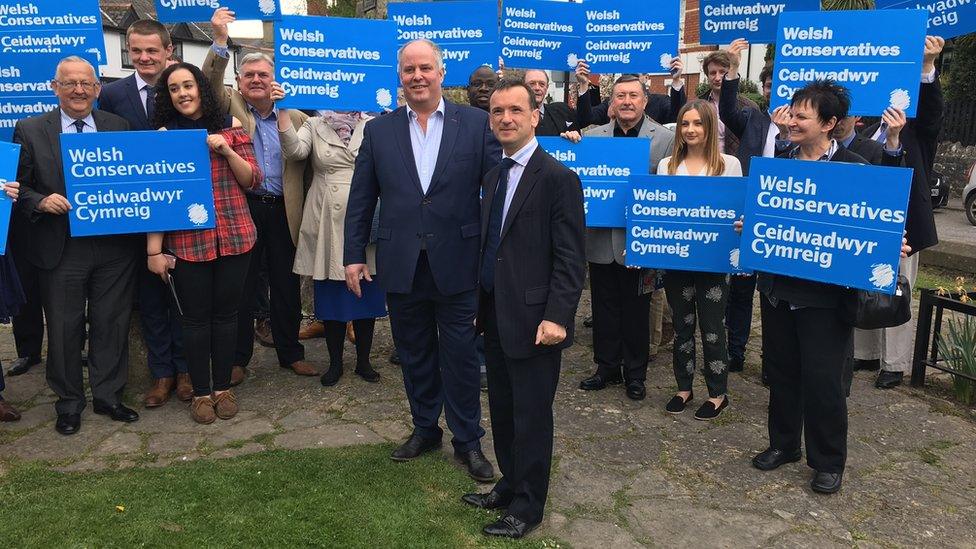
Andrew RT Davies (L) and and Alun Cairns (R) engaged in a high-profile spat during the election campaign
In the third of our summer features looking at the state of the Welsh parties in 2017, political correspondent Arwyn Jones explores the Welsh Conservatives.

"Water will flow under the bridge before we do anything but that water will drown Andrew RT Davies."
It was a startling thing to hear from such a senior Conservative source, who wished to remain anonymous.
It was then followed by: "Do not imagine for a moment that the party in London will roll over on this."
It was early April and the leader of the Conservatives in the assembly, Andrew RT Davies, had just pulled off what he thought was quite a coup.
He had announced that Mark Reckless, the former Conservative MP who defected to UKIP and later became an assembly member for that party, was defecting back to the Conservatives to vote with the group of Tory AMs, although he would not re-join the party.
But there was a catch - the nature of Mr Reckless's first defection to UKIP in 2014 was calculated to cause maximum damage to then Prime Minister, David Cameron.
And Conservative members have long memories.
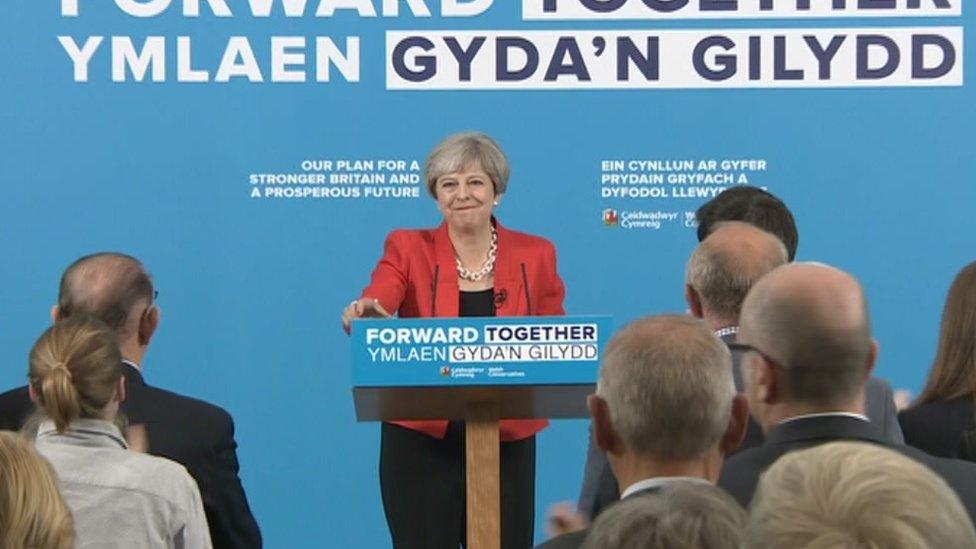
Theresa May made several campaign stops in Wales - but that was not enough to stop the party losing seats here
MPs lined up to criticise the move and were doing so, they said, with the backing of the very top brass of Conservative HQ.
They had asked Mr Davies not to press ahead with the move but had been ignored.
There were numerous anonymous calls from MPs and officials for Mr Davies to be sacked, removed from office - anything they could think of to get rid of him.
It was the latest episode of an increasingly fractious relationship between the Conservative groups at both ends of the M4 - the 11 AMs in Cardiff bay led by Mr Davies and the (then) 11 MPs in Westminster.
At the assembly election of May 2016 the Conservative party's steady progress in elections in Wales ground to a halt.
From a low base in 1997, where the party failed to secure a single MP, they had increased their share of the vote and number of representatives at every election for the assembly and Parliament.
But in 2016 for the first time in a devolved election the party went back in terms of share of the vote and in the numbers of AMs.
As Theresa May could still find to her cost, Conservatives do not tolerate losing.
The electoral loss combined with the anger over the Mr Reckless saga made it seem as though a day of reckoning was drawing close.
Then the general election was called. All bets were off.
As one candidate who had been seething about Mr Davies told me: "This is bigger than any spat with Andrew. This is the priority now."
Rarely have I seen a politician smile as broadly as Mr Davies when I asked him if the election meant his future was safe for the time being.
But all was clearly not well.
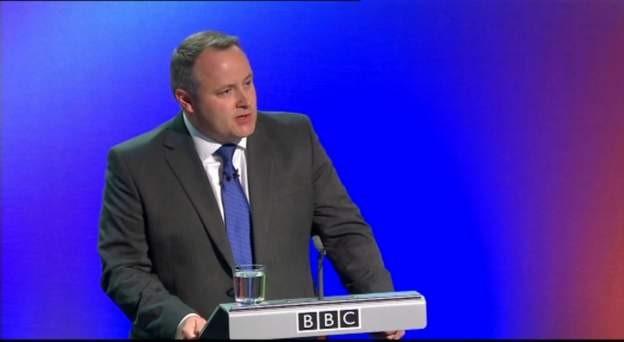
Darren Millar stood in for the Tories at a TV debate after Alun Cairns and Andrew RT Davies fell out
During the campaign, the friction between Mr Davies and the Secretary of State for Wales, Alun Cairns, came to the surface as they argued over who should represent the party in TV debates.
In the end, an AM, Darren Millar, had to step in at the last minute.
The early days of the campaign had promised so much for the Conservatives in Wales.
A shock early poll had journalists poring through the history books to see the last time the party had won more MPs here than anyone else (1859, since you ask).
But as it turned out, it was another disappointing result - their share of the vote was at a near-all-time high but they lost three of their 11 MPs.
Since then I've spent a lot of time speaking with AMs and MPs about what should happen next for the Conservatives in Wales.
Two things seem clear, and they are closely connected.
One is that Mr Davies is seen as part of the problem.
But the second thing is that he cannot be removed because there doe not seem to be anyone who will challenge him for the leadership of the party in the assembly.
Likely candidates such as Paul Davies, Darren Millar and Angela Burns all seem totally uninterested in taking on the leader.
But there are still calls for change.
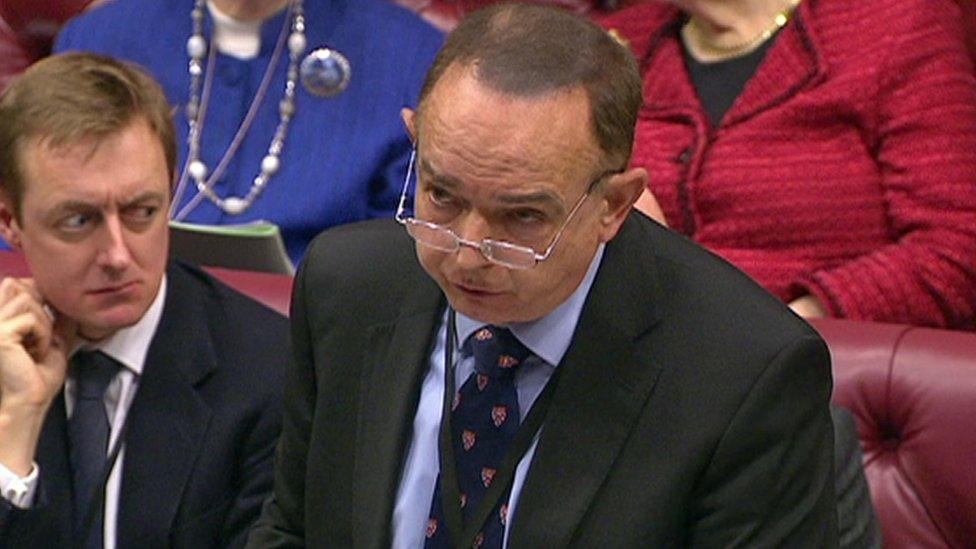
One source said Andrew RT Davies should look to how Lord Bourne ran his leadership
One MP told me Mr Davies is making tactical mistakes by spending so much time attacking Plaid Cymru.
"There are no votes in that for us," the MP said. "We should be focusing our energy against Labour."
Another source said he should look to how his predecessor, now Lord Bourne, ran the party in Wales.
He may have been disliked by some but he gave meaning to the "Welsh" Conservatives by embracing devolution.
He also sought the views of others before making decisions. That seems to have waned under Mr Davies.
I am also told that Mr Cairns and Mr Davies need to "act like grown-ups" and start working together again.
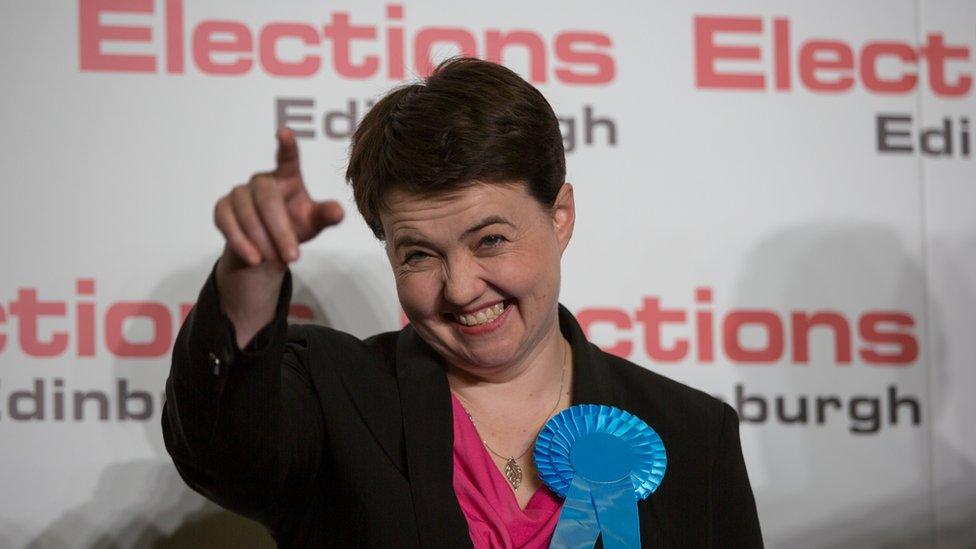
Ruth Davidson led the Scottish Conservatives to a hat-trick of electoral successes in just over a year
For his part, Mr Davies looks quite jealously at his counterpart in Scotland.
Ruth Davidson is an exceptionally popular party leader, who has more autonomy than her Welsh counterpart.
Mr Davies thinks there needs to be a designated leader in Wales who calls all the shots here.
He thinks that would solve many of the problems the Conservatives face in Wales.
But many senior figures say he has been calling the shots for too long, and that someone else should now take over.
- Published2 August 2017
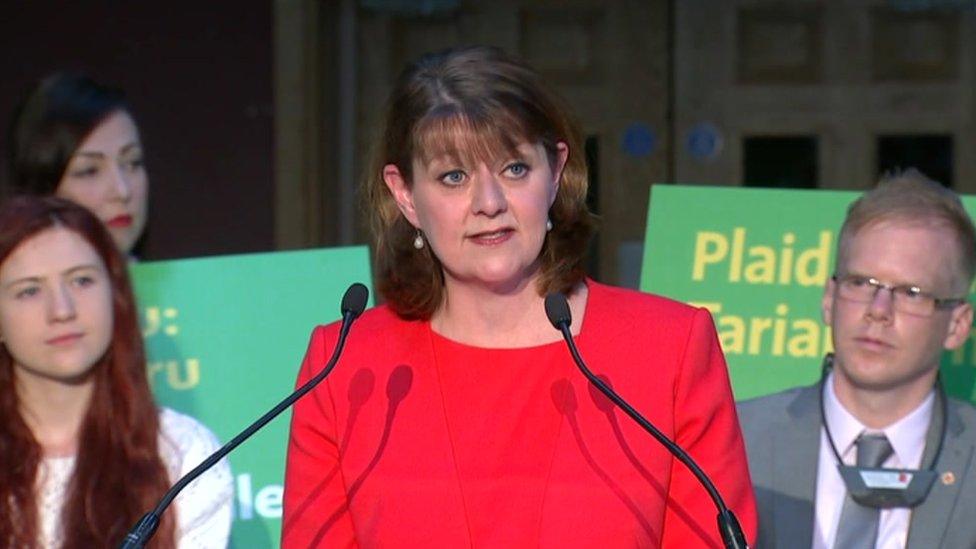
- Published1 August 2017
